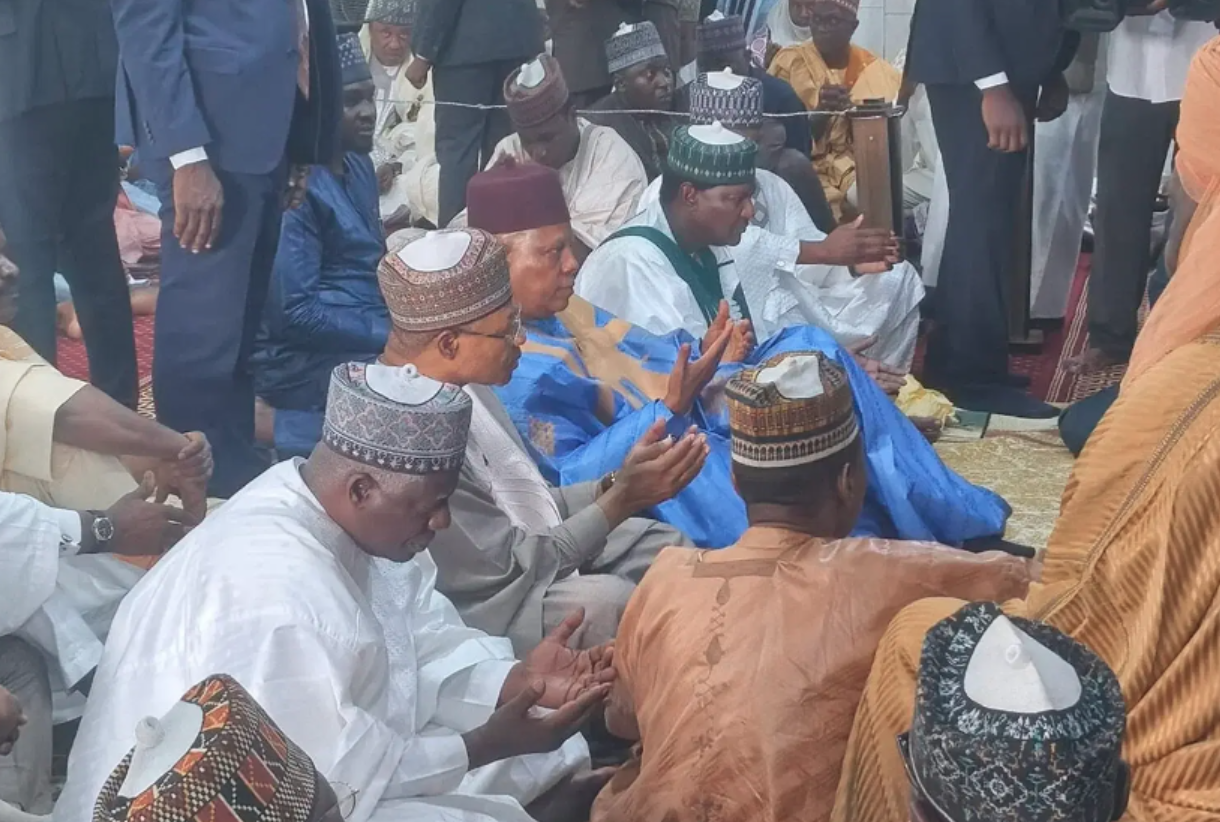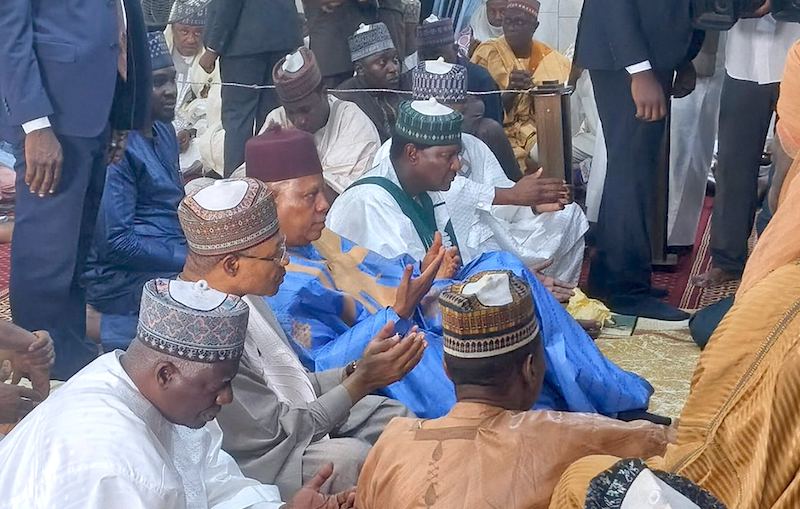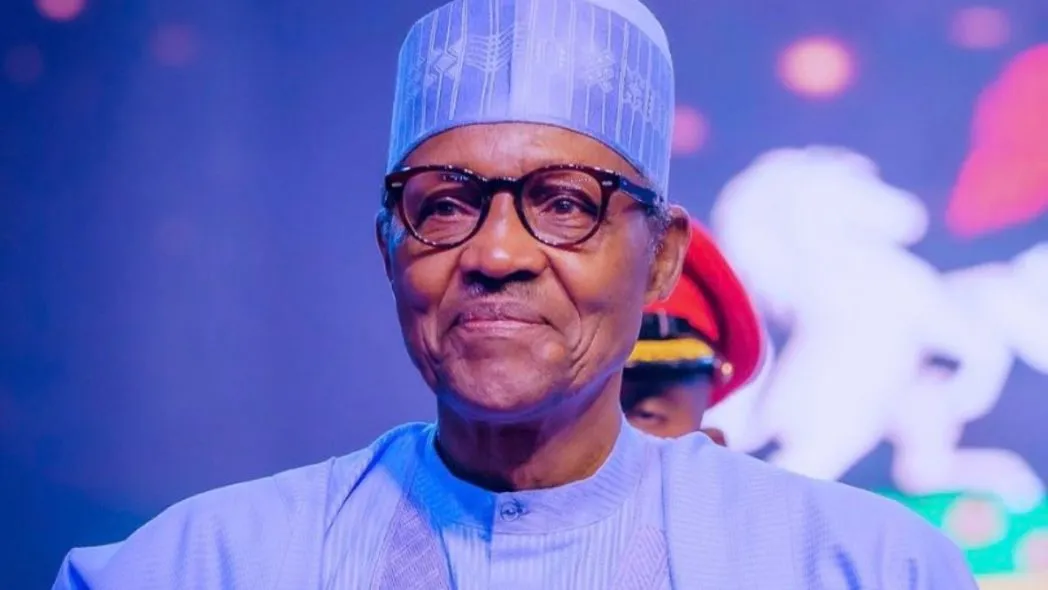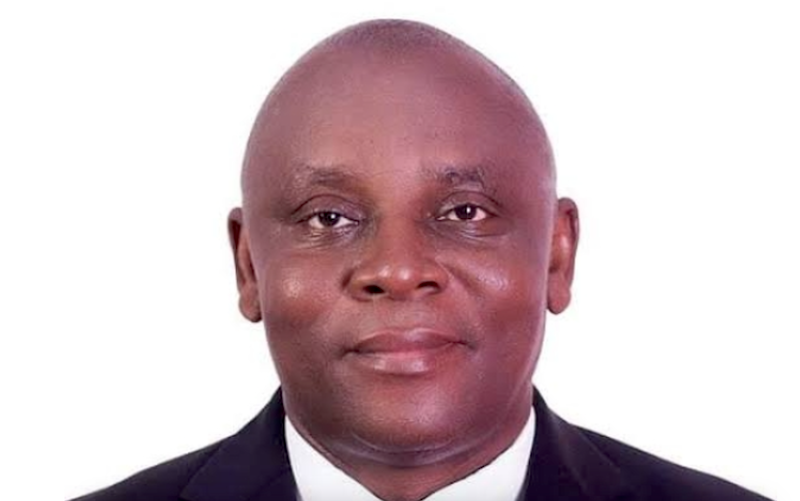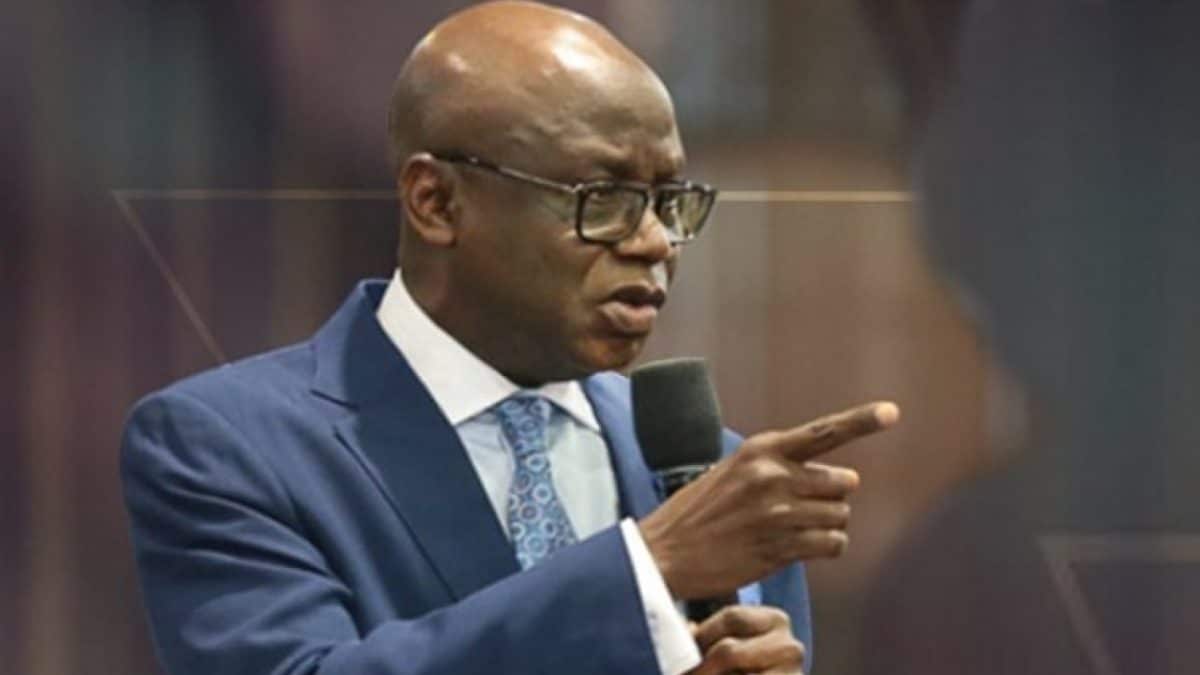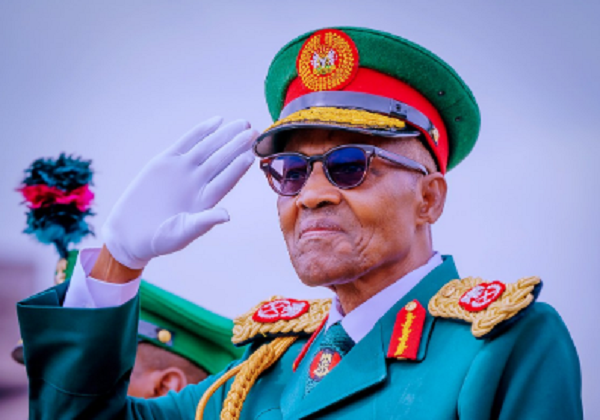Much has already been said and written about the life, public service career, passing, and burial of Nigeria’s former president, Muhammadu Buhari, GCFR. So rather than revisit the familiar aspects of his legacy, I have chosen to reflect on some of the less-discussed, subtle events and characteristics that shaped him in life and continue to define his memory in death.
During his presidential campaign between 2013 and 2015, Nigerians were bombarded with stories highlighting both the flaws and virtues of candidate Buhari. His critics within the then-ruling People’s Democratic Party (PDP) brought to light many of his past missteps and controversial traits, while his backers in the All Progressives Congress (APC) painted him as a principled, incorruptible patriot. This tug-of-war of narratives culminated in his victory over then-incumbent President Goodluck Jonathan in 2015, followed by his reelection in 2019.
Given how extensively his leadership style, governance record, and worldview have been dissected, this reflection intentionally avoids rehashing those well-trodden subjects.
As Buhari was laid to rest in his hometown of Daura, Katsina State on Tuesday, July 15, following his death on Sunday, July 13 in a London hospital at the age of 82, a Shakespearean line came to mind:
“…the good is oft interred with their bones…”
This line, from Julius Caesar and spoken by Mark Antony, captures a recurring truth — that people often remember the wrongs committed by the deceased far more than their good deeds. And in the case of President Buhari, this sentiment has come alive in the wake of his passing, particularly among Nigeria’s youth, whose reactions on both traditional and social media have been overwhelmingly critical.
Their resentment is rooted in what they saw as an antagonistic relationship with Buhari’s government. Instead of mourning with praise, many young Nigerians have reacted with a torrent of negative comments — some bordering on celebration of his death.
This bitterness stems partly from Buhari’s 2016 remarks during a UK visit, in which he described Nigerian youth as lazy — a comment that left a lasting wound. More significantly, his handling of the 2020 #EndSARS protests, during which security forces under his watch brutally suppressed unarmed demonstrators, cemented the perception of his administration as repressive and unfeeling. Earlier in his leadership career, the introduction of Decree 4, used to silence the press and imprison journalists, Nduka lrabor and Tunde Thompson, both of whom were newspaper editors further alienated him from a critical segment of society — the media.
Even the political elite, a group Buhari later belonged to, did not escape his harsh measures after he truncated democracy via a military coup d’état staged in 1983 to install himself as a military dictator. During his tenure as military head of state from 1983 to 1985, after he toppled the democratically elected government of President Shehu Shagari and Vice President Alex Ekwueme, he positioned himself as a strict enforcer with little regard for democratic norms but ruling with draconian laws.
It is trite to state that as an autocratic ruler, Muhammadu Buhari’s regime was marked by repression and authoritarianism. Many politicians he overthrew in his 1983 coup were sentenced to lengthy prison terms, with some dying in custody or suffering severe health consequences such as blindness. His iron-fisted rule lasted 20 months before he was ousted in another military coup by his fellow officers.
Despite his brutality evidenced by his harsh actions, Buhari made a surprising political comeback three decades later, returning to power through democratic elections in 2015. This remarkable political resurrection underscores Nigerians’ deep capacity for forgiveness.
An example of this forgiving nature is seen in Pa Bisi Akande, former Osun State governor and one of those unjustly imprisoned during Buhari’s military regime. Decades later, Akande became interim chairman of the All Progressives Congress (APC), the very political party that facilitated Buhari’s reentry into leadership as a democratically elected president.
Yet, while many older Nigerians — including some of his former political victims — have chosen to speak respectfully of Buhari after his passing, Nigeria’s youth have shown little restraint. Their criticism has been harsh and, at times, celebratory of his death. The contrast is stark: elders have taken a more measured approach, allowing time to dull the pain of the past, while younger Nigerians remain defiant and outspoken.
Their anger is rooted in events like Buhari’s 2016 remark in the UK labeling Nigerian youths as “lazy,” and his administration’s violent crackdown on peaceful #EndSARS protesters in 2020. Buhari’s history of stifling press freedom — notably through Decree 4 — also alienated the media and many civil society actors. Unlike the elders who seem to have moved on, the youth have not forgotten — or forgiven.
This generational divide in the perception of Buhari reflects a deeper shift in societal values. Traditionally, African cultures discourage speaking ill of the dead — a norm grounded in ancestral respect, communal harmony, spiritual beliefs, and the reverence for elders. Yet today’s youth seem to be moving away from this custom, choosing instead to air their grievances openly, even after a leader’s death.
I find this cultural erosion troubling.
Hence one of the most significant takeaways from Buhari’s life, leadership, and passing is this cultural shift — a warning sign that we are losing essential values that once held our society together.
As I reflected on the mixed reactions to Buhari’s death, I was reminded again of Mark Antony’s famous line from Shakespeare’s Julius Caesar (often mistakenly attributed to Macbeth):
“The evil that men do lives after them; the good is oft interred with their bones.”
This quote speaks volumes. It highlights how society tends to remember a person’s flaws long after they’re gone, while their virtues are quickly forgotten. Buhari’s legacy seems to follow this pattern — with many quick to recall his wrongdoings while overlooking his contributions.
In African tradition, avoiding criticism of the dead serves several purposes. It honors the deceased as ancestors who are believed to continue influencing the living. It maintains social peace, reinforces cultural values, and aligns with deeply held spiritual beliefs about the afterlife.
Interestingly, this practice is not unique to Africa. In many Asian societies, including Chinese and Japanese cultures, speaking ill of the dead is frowned upon. Indigenous cultures around the world also share this view, and even some Western societies — though less rigid — maintain a similar decorum, especially during official tributes or funerals.
However, in the West, especially among Caucasian societies, this restraint is not always observed. A striking example is the reaction to the death of former British Prime Minister Margaret Thatcher in 2013. Her passing sparked not only political debate but also outright public celebrations by those who opposed her policies — especially among working-class communities devastated by her economic reforms.
Street parties in areas like Brixton and Glasgow made headlines, while miners and their unions — still angry over her handling of the 1984–85 miners’ strike — expressed open contempt. Even politicians like Tony Benn offered pointed critiques of Thatcher’s legacy, accusing her of deepening social inequality.
This type of reaction — reminiscent of what we’re witnessing with Buhari’s passing — shows how deeply divisive leaders leave behind polarized legacies. In Nigeria, the public response has been similarly split along generational lines: the youth, many of whom bore the brunt of Buhari’s policies, are his harshest critics, while the older generation, including political figures and former allies, have been far more reserved or even respectful in their eulogies.
Take, for instance, the subtle tributes by former President Olusegun Obasanjo (OBJ) and Labour Party presidential candidate Peter Obi. Both men, in what appeared to be carefully worded statements, said Buhari “did his best.” This ambiguous phrasing mirrors the diplomatic tone often used when paying respects to controversial figures — a nod to civility without fully endorsing the legacy.
In sum, Buhari, like Thatcher, will remain a deeply debated figure in history. And just as Thatcher’s impact continues to stir reflection in the UK, Buhari’s rule — both as a dictator and a democrat — will likely dominate Nigerian discourse for years to come. The generational divide in how he is remembered — youth versus elders — may be the clearest reflection of how his leadership was received, and perhaps, of the cultural transformation underway in Nigeria itself.
Despite the scorn and resentment many young Nigerians still hold toward President Buhari—even after his passing—the turnout at his burial in Daura was massive and intense. As is often the case with public ceremonies in Nigeria, especially high-profile funerals, the event was marked by disorganization and chaos, much like the burial of the late President Umaru Yar’Adua in Katsina State back in 2010.
It is regrettable that, despite President Tinubu constituting a 25-member committee to plan Buhari’s state burial, the coordination was far from impressive—certainly not chaotic, but underwhelming. In contrast, events organized by professionals in the private sector typically run much more smoothly. This raises a critical question: why don’t government agencies responsible for such high-profile events enlist experienced private sector planners to achieve the polished standards we often admire in other parts of the world?
Fortunately, no casualties were reported during Buhari’s funeral. And to President Tinubu’s credit, he played a highly visible and active role in the entire process. From dispatching Vice President Kashim Shettima and Chief of Staff Femi Gbajabiamila to London to accompany Buhari’s body back home, to participating in the final interment, Tinubu demonstrated statesmanship and upheld the dignity of the presidency, both in life and in death.
As Arise News anchor Vimbai Murithini-Ekpeyong rightly noted, Buhari’s remains were returned to Nigeria with dignity—in the passenger cabin of the aircraft, not in the cargo hold, as was the unfortunate case with the late Zimbabwean President Robert Mugabe’s remains. That small but significant detail conveyed respect and was, for many, a powerful symbolic gesture.
While recognizing that Nigeria doesn’t operate at the same level of development as Western countries, it’s still instructive to compare the logistics of Buhari’s funeral with those of former U.S. President Jimmy Carter (2024) and British Prime Minister Margaret Thatcher (2013). Both Western funerals were well-coordinated and dignified, offering far better optics than the disorder seen in Daura on Tuesday, July 15.
As the saying goes, learning never stops. To improve the planning and execution of VIP funerals in Nigeria, especially those involving former presidents, the following globally accepted strategies are worth adopting:
1. Pre-Event Planning
• Clear Communication: Share schedules, expectations, and protocols with attendees in advance.
• Comprehensive Crowd Management Plan: Outline staffing, emergency procedures, and crowd services.
2. Effective Crowd Control
• Barriers and Signage: Guide people and prevent overcrowding using physical boundaries and clear signs.
• Security Deployment: Ensure adequate presence of security personnel for order and emergency handling.
• Designated Viewing Zones: Create structured areas for attendees to reduce pressure on key zones.
3. Use of Technology
• Surveillance Systems: Install cameras for crowd monitoring and early issue detection.
• Public Address Systems: Use loudspeakers to keep crowds informed and coordinated.
4. Community Involvement
• Public Sensitization: Promote decorum and respectful behavior through awareness campaigns.
• Engage Local Leaders: Work with community influencers to foster calm and cooperation.
5. Emergency Preparedness
• Incident Response Plans: Establish clear protocols for medical or security emergencies.
• Medical Presence: Provide on-site medical teams; reports suggest a woman fainted during the Daura ceremony.
Of course, one major difference must be acknowledged: unlike Western funerals that benefit from extended planning periods, Nigeria’s past presidents—Umar Yar’Adua (2010), Shehu Shagari (2018), and Muhammadu Buhari (2025)—were all buried promptly following Islamic rites, which require burial within 24 hours. This time constraint naturally limits preparation.
Still, adopting the above strategies can make future high-profile funerals more organized and dignified, even within tight timelines.
That said, there is a strong case for institutionalizing the burial process of top government officials. Another takeaway for me is why clear, legally defined Standard Operating Procedure (SOP) should govern state funerals—much like how outgoing governors secure pensions by signing entitlements into law before leaving office. This would ensure that the burial of a president, vice president, Senate president, or House speaker is not left to the discretion of the sitting president.
Such a framework would help prevent the kind of neglect allegedly experienced by former President Shehu Shagari, whose grandson, Nura Muhammed Mahe, claimed he did not receive a befitting state burial under President Buhari’s administration in 2018.
Codifying state funeral procedures would offer consistency, dignity, and fairness, regardless of who is in power. I believe living former presidents like Olusegun Obainsanjo and Goodluck Jonathan should champion this cause. Whether it should also apply to former military heads of state is open for debate—but the need for reform is clear. For emphasis’s sake, this, for me, is one of the most important takeaways from Buhari’s burial.
Given the extensive commentary on the life, leadership, and eventual burial of former President Muhammadu Buhari, one cannot help but recall the words of Barack Obama during his 2016 visit to Africa, particularly in Ghana, where he famously stated: “Africa needs strong institutions, not strong men.” It’s as though Obama had Buhari in mind.
Buhari embodied the classic image of a “strongman.” Although he was popularly known as Mai Gaskiya (the honest one), he symbolized the pitfalls of personality-driven leadership in a continent yearning for institutional strength. Had he invested in building robust, technology-driven anti-corruption institutions—as some of us had advised in numerous articles —rather than waging a selective and discretionary anti-graft war that plunged the economy into recession, Buhari’s legacy might have been markedly different. Perhaps, alongside Mai Gaskiya, his tombstone might have read: The Man Who Fought and Defeated Corruption.
Given the contradiction that corruption was inadvertently given a new lease of life during his reign, his trademark slogan “If we don’t kill corruption, it will kill us”, can be said to have manifested in breach as the mantra has turned out to be a sort of oxymoron.
However, public discourse following his death paints a different picture—one of a powerful man who weakened, rather than strengthened, Nigeria’s institutions. Analysts attribute this to tendencies such as nepotism, religious favoritism, and a limited national outlook.
A glaring example of this was the disregard for the Federal Character principle, which is embedded in the Nigerian Constitution to ensure equitable representation. Critics have long pointed out that Buhari’s appointments in the security sector were heavily skewed toward the North and predominantly Muslim. As columnist Dakuku Peterside noted, during Buhari’s first term, 35 out of 47 top security and intelligence appointments were from the North, with 31 of them being Muslims.
The Federal Character Commission was established to prevent precisely this kind of imbalance, but under Buhari’s leadership, its purpose was undermined. Ironically, the same Buhari hailed for his integrity allowed herders to roam freely with AK-47 rifles—an egregious violation of the Nigerian constitution, which permits only the armed forces to carry such weapons.
Critics argue that this tolerance/ exception granted to the rules for armed herders—while ordinary citizens require licenses for even hunting guns—exacerbated insecurity, especially in rural farming communities. The result was a lopsided power dynamic where armed herders terrorized unarmed farmers, leading to widespread violence, displacement, and the proliferation of internally Displaced People, IDP camps.
This imbalance in the use of force continues to fuel brutal attacks in states like Plateau, Benue, and Nasarawa. It’s a legacy that President Tinubu must confront and correct if the nation is to move forward by doing what needs to be done to shed the ugly toga of insecurity.
The broader consequence of Buhari’s governance style—marked by disregard for rule of law and institutional norms—has left deep scars. His policies caused untold hardship, and the collapse of critical institutions under his watch created a governance vacuum that will take time to mend.
One can only imagine the chaos if the constitutional requirement for winning a presidential election with at least two-thirds of votes across Nigeria had been ignored in Buhari’s favor in 2003, based solely on his popularity in the North and his myth of having 12m votes in the three times he contested and failed to win the presidential elections. Perhaps we might not have had a country as we do today. That hypothetical scenario reflects the same regional bias he enacted in office—allowing armed herders to dominate and terrorize unarmed farming communities.
This legacy of imbalance of allowing armed herdsmen to inflict violence on unarmed farmers has significantly stained what might have otherwise been a commendable administration. The irony of it all is that the Internally Displaced People, IDP camps spread across the northern region contain both Christians and Muslims alike. That is why attempts to make the insecurity crisis in the northern flank of the nation look like religious conflict have been futile.
Even with Tinubu’s efforts to stabilize the economy and restore order, the damage done to our nation via insecurity will take many years to fully repair. But he still has time to fix the broken system and given his record of taking on tough tasks and prevailing, like the monster of petrol subsidy which he has succeeded in defeating, insecurity may equally be defeated sooner rather than later if it is tackled with a similar fervor that the economic imbalances bedeviling and hobbling our country have been addressed.
In the final analysis, we can not forget that in African tradition, speaking ill of the dead is frowned upon. So, those who continue to harshly criticize Buhari after his death are arguably in violation of cultural norms that promote respect for the deceased. As the saying goes, to err is human, to forgive is divine.
Buhari himself was aware that his leadership had left many aggrieved. After leaving office, he publicly sought forgiveness from Nigerians. Following his death, his wife, Aisha Buhari, reiterated this appeal—defending her late husband, who she acknowledged was tough but politically naive. Throughout his time in power, she tried to shield him from the backlash his decisions would inevitably provoke, some of which are now surfacing.
Given the combined pleas of both Buhari and his wife, it’s only fair to call on the aggrieved, particularly the youth, to allow his soul to rest in peace.
Magnus Onyibe is an entrepreneur, public policy analyst, author, democracy advocate, and development strategist. He is an alumnus of the Fletcher School of Law and Diplomacy at Tufts University, Massachusetts, USA, a Commonwealth Institute scholar, and a former commissioner in the Delta State Government. He wrote from Lagos.
